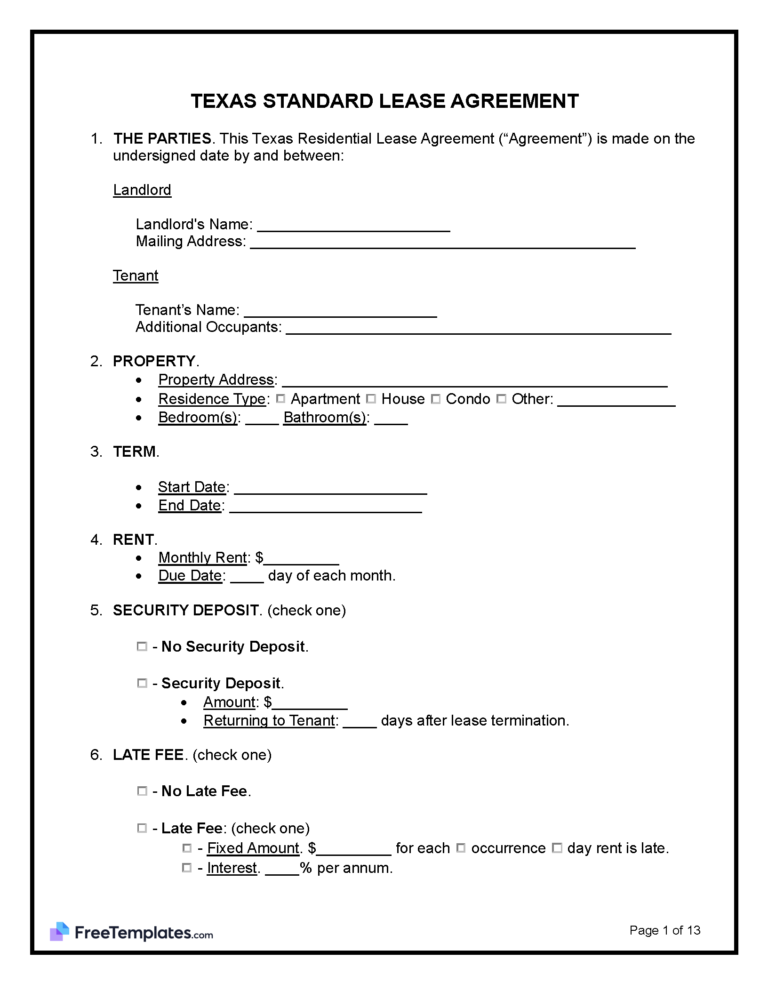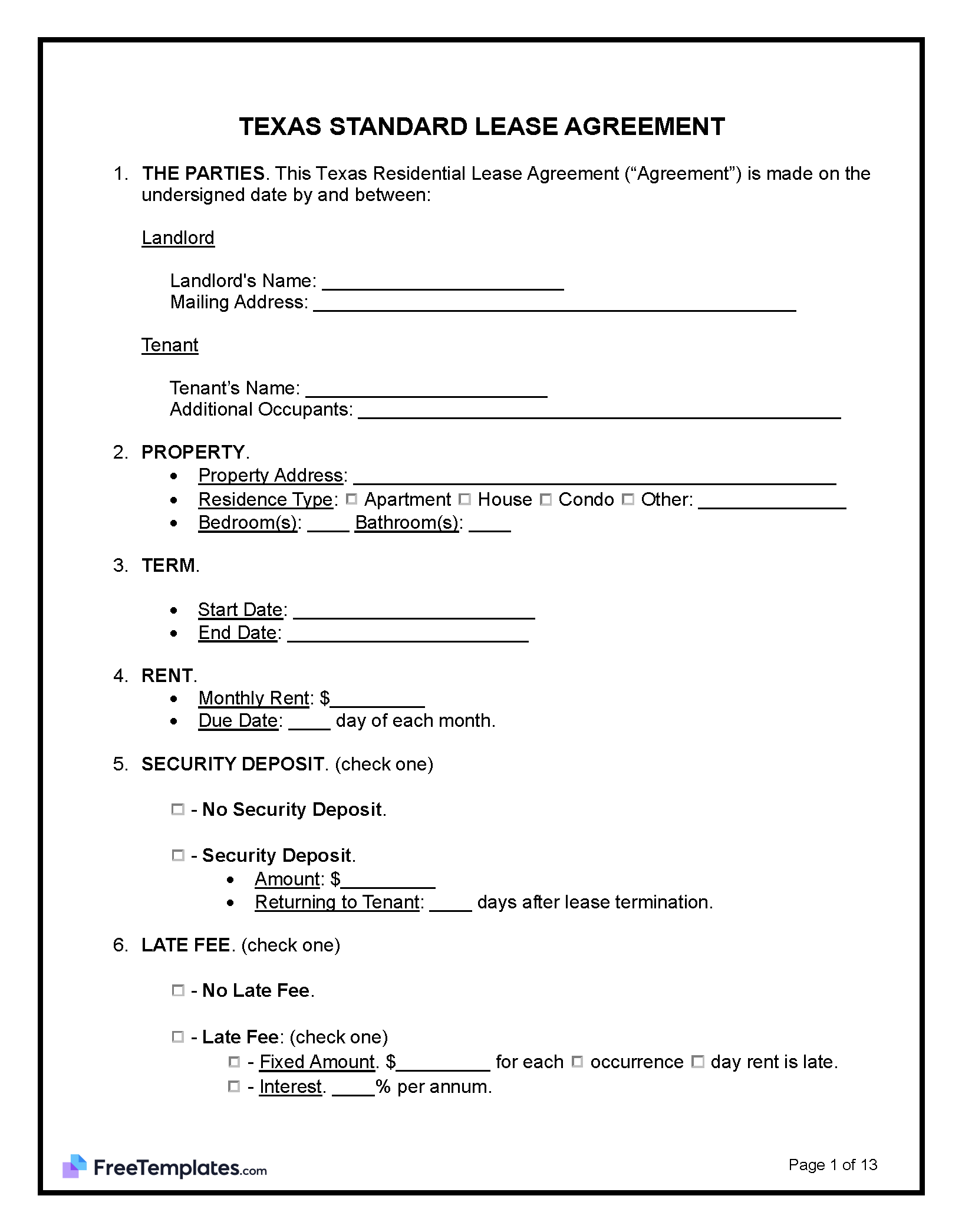Disclosures (7)
100-Year Flood Plain – If the property is located in a 100-year flood plain, the landlord must disclose this to the tenant. (§ 92.0135)
Landlord Identification – The names and addresses of any property manager or owner must be made available to the tenant. (§ 92.201)
Lead-Based Paint Disclosure – For a property constructed before 1978, the landlord is required to make the tenant aware of the possibility of lead-based paint being present. (EPA/HUD Fact Sheet)
Right to Interrupt Utilities – If the tenant fails to pay the rent, the landlord may have the right to shut off their electricity; however, it must be agreed to in the lease agreement, and notice must be given. (§ 92.008(h))
Special Conditions to Cancel Agreement – The following must be included in the lease agreement: “Tenants may have special statutory rights to terminate the lease early in certain situations involving family violence or a military deployment or transfer.” (§ 92.016(f))
Tenant’s Remedies – If the tenant needs to make a repair that goes unacknowledged by the landlord after a 7 days notice, the renter may fix the issue and bill the landlord. § 92.056(g)
Texas Parking Rules Addendum – Tenants must be aware of parking rules and policies with a written form for any renting multi-unit property. (§ 92.0131)
Rent Grace Period
Security Deposit
Maximum Amount – No state statutes cover the maximum amount a landlord may charge a tenant for rent in the state of Texas.
Returning – The security deposit must be returned to the tenant within 30 days of the lease’s end. (§ 92.103)
- Deductions – If a landlord deducts any funds from the security deposit for damages it must be listed and provided to the tenant. (§ 92.104(c))
- Tenant Doesn’t Forward New Address – If the tenant does not forward their new address to the landlord, the security deposit may not be returned. (§ 92.107)

